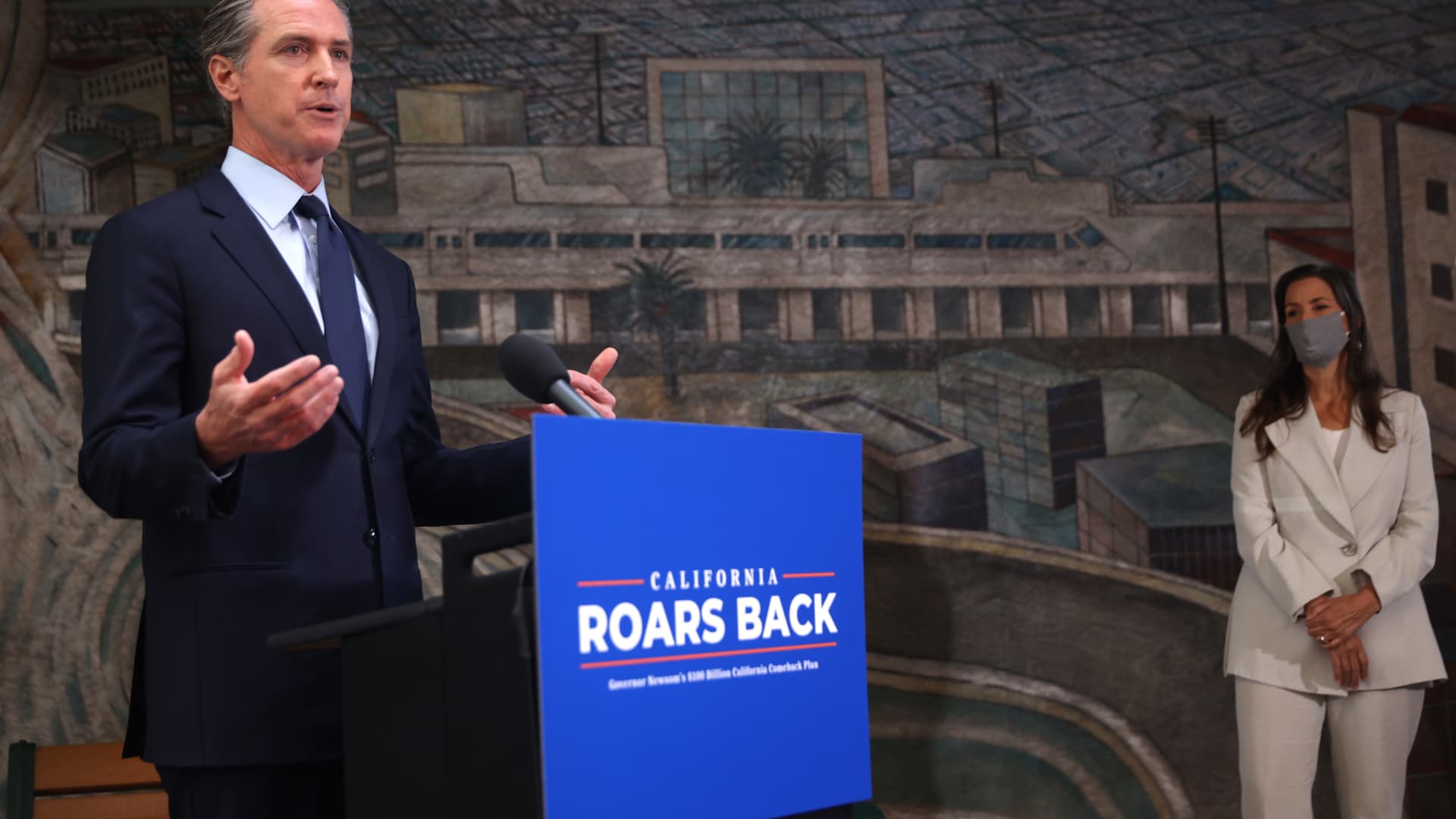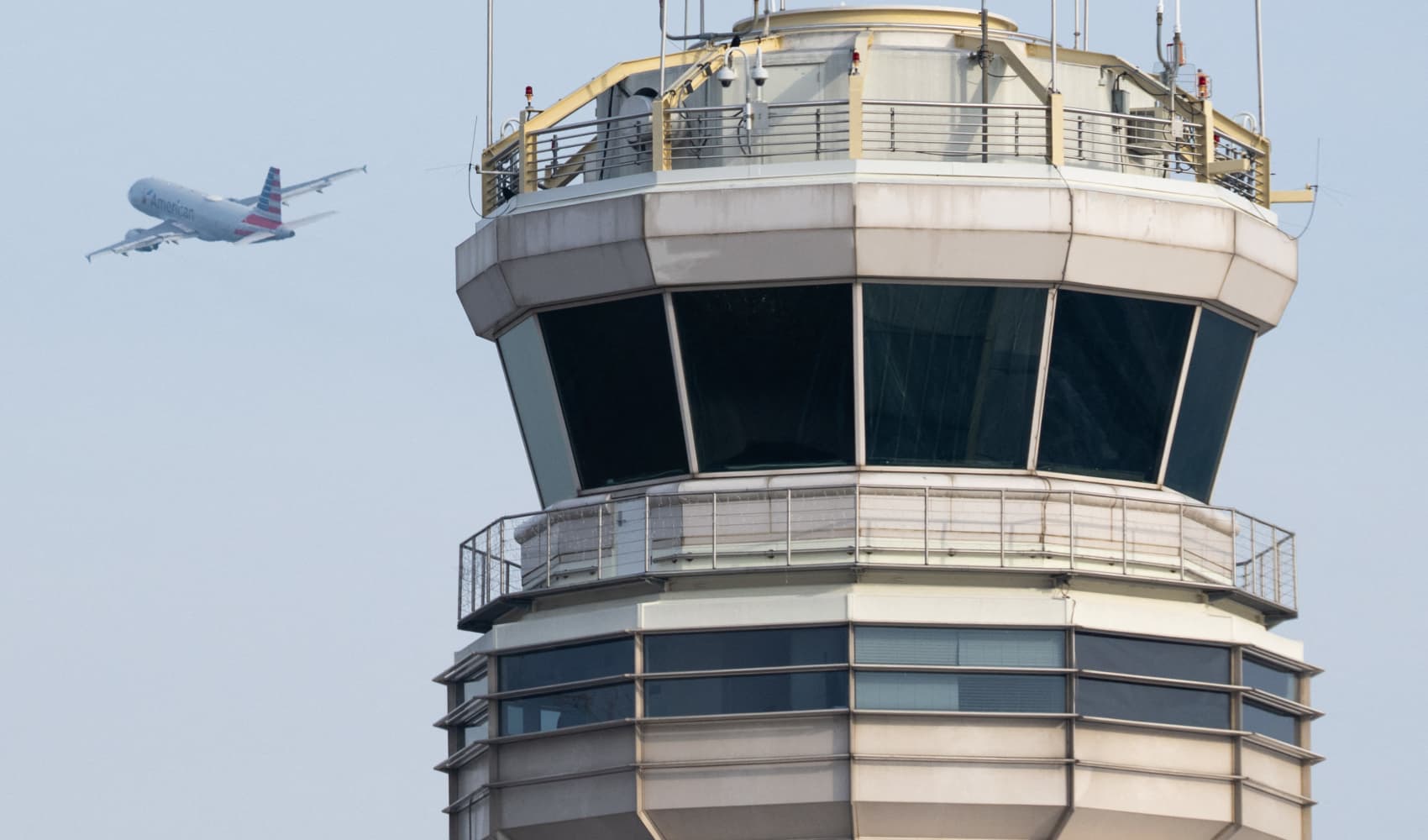
- California on Friday began deploying one-time payments that will benefit up to 23 million California residents in the largest program of its kind in the state's history.
- The highest amount, $1,050, will go to married couples with a dependent and $150,000 or less in income.
- Here's what we know about the checks.
Up to 23 million California residents are about to receive tax refunds of as much as $1,050, thanks to one-time stimulus payments the Golden State began deploying Friday.
The payments, which will total $9.5 billion, mark the largest program of its kind in the state's history.
The initiative, dubbed the Middle Class Tax Refund, comes as inflation nationally has reached historic highs. California had a record $97.5 billion surplus as it finalized its budget including the payments earlier this year.
We're making it easier for you to find stories that matter with our new newsletter — The 4Front. Sign up here and get news that is important for you to your inbox.
More from Personal Finance:
The job market is cooling but workers still have power
This is the best time to apply for college financial aid
GOP challenges to Biden's student loan forgiveness put relief in peril
"We know it's expensive right now, and California is putting money back into your pockets to help," California Gov. Gavin Newsom, a Democrat, said in a statement.
"We're sending out refunds worth over a thousand dollars to help families pay for everything from groceries to gas," he said.
Money Report
Who qualifies for a refund?
To qualify to receive a payment, you must meet certain requirements.
You must have been a resident of California for six months or more in the 2020 tax year and be a current state resident.

You must have filed a 2020 tax return by Oct. 15, 2021, and have adjusted gross income within the required thresholds.
Additionally, you must not have been claimed as a dependent by someone else.
How much money will I receive?
Payments for eligible couples who file jointly may range from $400 to $1,050.
Qualifying individuals may receive $200 to $700.
The amount of the checks depends on two factors: income and number of dependents.
The most generous amount — $1,050 — goes to married couples who file jointly with $150,000 or less in income and a dependent. A couple in that income category will receive $700 if they have no dependents.
Individual taxpayers with $75,000 or less in income may receive $700 if they have a dependent and $350 if they do not.
The payments are gradually phased out for those with up to $500,000 in income, for married couples, and $250,000, for individuals. California residents with incomes above those thresholds will not receive a stimulus payment.
The income is based on your California adjusted gross income, which can be found on line 17 of the 2020 Form 540 or line 16 of the 2020 Form 540 2EZ.
An online tool can help estimate your payment amount.
When will the checks go out?
Payments will be issued between this month and January.
Direct deposits will be sent to residents who e-filed their 2020 state returns and received a refund from the state by direct deposit. About 90% of the direct deposits are expected to be issued in October, starting Friday.
Other payments will be issued on debit cards sent in the mail starting later this month.
A total of 18 million payments will be sent. The checks are expected to benefit up to 23 million Californians.
To find out when you may receive your money, check the online payment schedule.
Will the payments cause inflation?
California is not the only state to deploy one-time rebates amid budget surpluses. Florida, for example, is sending $450 to certain families with kids.
A big question prompted by the checks sent by California and other states is whether they will exacerbate inflation.
While California "on net will come out ahead," it may be impacted as other states export inflation with their refunds, Harvard University economics professor Jason Furman recently tweeted.
"Californians are going to come out behind from any 'inflation relief payments' made by Florida and other states," he wrote.
While states have been deploying one-time payments all year, there has been an uptick as Election Day approaches, noted Jared Walczak, vice president of state projects at the Tax Foundation.
"States are sitting on record surpluses and many individuals are struggling under the weight of extremely high inflation," Walczak said.
That's prompting policymakers to put the two together and want to write checks.
"Unfortunately, that's only fueling further inflation by injecting more money in an overheated economy," Walczak said.
Tax cuts would be a better alternative for long-term additional revenues, he said. If instead states are looking at one-time money, it would be better spent on one-time needs, such as pension or rainy day funds, he said.






